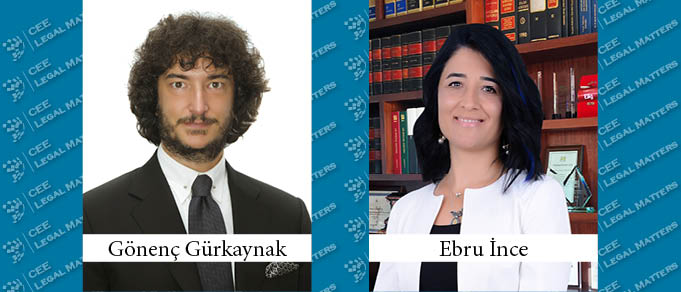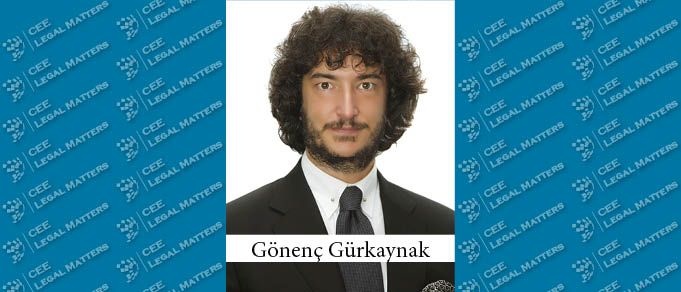The Turkish Competition Authority (“Authority”) published its Final Report on the E-Marketplace Sector Inquiry (“Final Report”) on April 14, 2022, after a period of almost a year after publishing its Preliminary Report on the E-Marketplace Sector Inquiry (“Preliminary Report”) on May 7, 2021.
Turkey: The Banking Regulation and Supervision Agency Announces Restriction on Commercial Turkish Lira Loans for Corporate Borrowers
The board of the Banking Regulation and Supervision Agency (“the Board”) has announced macro-prudential measures over the course of this weekend, consisting of (i) the Board Decision regarding prohibition of commercial Turkish Lira loans to corporate borrowers subject to independent audit dated June 24, 2022 (“Board Decision”) and (ii) press release determining the scope and implementation of the Board Decision dated June 26, 2022 (“Press Release”). Accordingly, until a new decision to the contrary is introduced by the Board or the Central Bank, corporate borrowers being subject to independent audit and holding foreign currencies above certain thresholds will no longer be allowed to borrow commercial cash loans in Turkish Lira.
Can a Resignation Intent Declared in a WhatsApp Group Be Considered As Proof of Resignation Event?
In addition to its big impact on our social life, WhatsApp messenger (“WhatsApp”) or any other online messaging platform also is used in business life in order for people to communicate quickly and easily. Nowadays, many people are sending work related messages to their colleagues, discuss work related topics, sharing work related documents or conducting their meetings via WhatsApp or any other online messaging platforms.
The Turkish Medicines and Medical Devices Agency Publishes New Draft Guidelines
On June 7, 2022, the Turkish Medicines and Medical Devices Agency (“Agency”) published the Draft Guidelines on Packaging Information and Legibility of Foods for Special Medical Purposes (“Legibility Guidelines”) and the Draft Guidelines on New Health Claim Applications (“Application Guidelines”).
Law Proposal Amending the Press Law and Further Laws Has Been Published
On May 27, 2022, the Law Proposal Amending the Press Law and Further Laws (“Draft”) has been published on Grand National Assembly of Turkey’s (TBMM) website, which includes significant amendments to various laws. The Draft is currently submitted before the relevant commissions (i.e. Justice Commission and Digital Platforms Commission) for discussions, and it is one of the agenda items of the Digital Platforms Commission’s meeting of June 1, 2022. The Draft is anticipated to be published within the second quarter of 2022.
Evolution of the Turkish Competition Authority's Approach Towards MFN Clauses: E-Marketplace Sector Inquiry Report
On March 14, 2022, the Turkish Competition Authority (“Authority”) published its much anticipated E-Commerce Platforms Sector Inquiry Final Report (“Report”). The Report is extensive in scope and it aims to present a snapshot of the market and provide policy recommendations to address the market failures detected by the Authority. In this article, however, the section on the most favored nation (“MFN”) clauses will be focused on and more particularly it will be discussed whether MFN clauses can be employed by digital platforms in the light of findings of the Report. Decisional practice of the Turkish Competition Board (“Board”) will also be under the spotlight to provide further colour.
Turkish Healthcare Agency Publishes Guidelines on Homeopathic Products
The Turkish Medicines and Medical Devices Agency ("Agency") published the Guideline on License Application for Homeopathic Medicinal Products (“Guideline on Licensing”) and the Guideline on the Packaging, Homeopathic Medicinal Product Information, Legibility and Tracking of Homeopathic Medicinal Products (“Guideline on Packaging”) on March 15, 2022. Both Guidelines are based on Homeopathic Medicinal Products Licensing Regulation (“Regulation”). Within the scope of the Guidelines, the Agency has started accepting license applications for homeopathic medicinal products through the website www.ebs.titck.gov.tr, as of April 1, 2022.
DMA: EU, Turkey and Beyond
Over the recent years, digitalisation and digital services have been at the core of many innovative advantages for businesses and end users alike. These benefits range from online intermediation services to software application stores. This variety offers better and more efficient choices for users while increasing competition within the digital markets industry.
The New Merger Control Regime in Turkey Entered into Force as of May 4, 2022: Sectoral Threshold Exception Explained: Concentrations in Certain Sectors Are Now Expected To Be Way More Frequently Notifiable in Turkey
On March 4, 2022 the Turkish Competition Authority (“Authority”) published the Communiqué No. 2022/2 on the Amendment of Communiqué No. 2010/4 on the Mergers and Acquisitions Subject to the Approval of the Competition Board (the “Amendment Communiqué”). The Amendment Communiqué introduced certain new rules concerning the Turkish merger control regime, which fundamentally affect merger control notifications submitted to the Authority.
A Decision on the Welding Sector: How the Turkish Competition Board Uses Economic Analysis in the Presence and Absence of the Evidence of Communication among Competitor Undertakings?
The Turkish Competition Board’s (the “Board”) decision on whether undertakings that are active in the welding sector violated Article 4 of the Law No. 4054 on the Protection of Competition (“Law No. 4054”) by way of determining their prices together has been published.[1]
Approval of the Amendments to the ICSID Rules
On March 21, 2022, Member States of the International Centre for Settlement of Investment Disputes (“ICSID”) approved a comprehensive set of amendments to the ICSID’s flagship rules for resolving disputes between foreign investors and their host States, after a five-year long process. This marks the fourth time the ICSID rules have been updated. Also, this is the most extensive review until now, as also explicitly acknowledged by the ICSID. The amendments will come into effect on July 1, 2022 and will apply to arbitrations commenced from that date onwards.
Digitalization in Turkish Corporate Law Practice
In Turkey, digitalization in corporate law practice has been significantly and gradually increasing in the last few years. Provision of digital signature declarations through the Central Registration System (“MERSIS”), making foreign direct investment notifications through the Electronic Incentive Practices and Foreign Capital System (“E-TUYS”) and receiving electronic notifications from the Social Security Institution (“SSI”) are some of the recent examples and developments of this effort. In this article, we will evaluate these current developments and explain significant points that should be taken into consideration for efficiency.
Sectoral Threshold Exception Explained: Concentrations In Certain Sectors Are Now Expected To Be Way More Frequently Notifiable In Turkey
On March 4, 2022 the Turkish Competition Authority (“Authority”) published the Communiqué No. 2022/2 on the Amendment of Communiqué No. 2010/4 on the Mergers and Acquisitions Subject to the Approval of the Competition Board (“Amendment Communiqué”). The Amendment Communiqué introduces certain new regulations concerning the Turkish merger control regime, which will fundamentally affect the notifiabiliy analysis of the transactions and the merger control notifications submitted to the Authority.
The Board Conditionally Clears a Horizontal Transaction in the Online Comparative Ticket Sales Market
The Turkish Competition Authority (the "Authority") published its Obilet/Biletal decision where it conditionally approved the acquisition of Biletal İç ve Dış Ticaret A.Ş.’s (“Biletal”) sole control by Obilet Bilişim Sistemleri A.Ş. (“Obilet”) and decided that the proposed transaction would not result in significant impediment of effective competition under Article 7 of Law No. 4054 on the Protection of Competition ("Law No. 4054")[1] subject to commitments proposed by the parties.
What Would A User Generated Content Platform Provider Need To Know When Entering Turkish Market?
From promoting a new brand to preserving the market presence of an already established one, User Generated Content (“UGC”) has become an uncanny tool to initiate and preserve consumer engagement. With that, social network providers have transformed from mere conduits of social interaction between individuals, to multifaceted platforms that enable businesses to reach their consumers. As UGC became more and more mainstream, pulled millions of users and created some of the biggest tech companies, many countries try to catch up with regulations such as Turkey.
Analysis on the Scope of Sectors Where Concentrations Will Almost Categorically Be Notifiable in Turkey After 4 May 2022 Under The New Regime
As announced last week, the Turkish Competition Authority has recently amended the legislation relating to the Turkish merger control regime through an amendment communiqué. This piece of additional analysis is to explore the scope of sectors that will be exempt from certain local turnover thresholds, and therefore the concentrations in which will be notifiable in Turkey regardless of magnitude of Turkish operations.
Turkey: Dividend Right Certificates
Turkish Commercial Code No. 6102 (“TCC”) sets forth that in accordance with the articles of association or by changing the articles of association, general assembly of shareholders of a joint stock company may decide to issue dividend right certificates in favor of the owners, creditors or those related to the company for a similar reason. In this article, we will focus on the purpose and types of dividend right certificates within the framework of Article 348, 502 and 503 of the TCC.
Rules of Information Exchange Revisited by Turkish Competition Board in Retail and Wholesale FMCG Sector: A Step Forward for Hub & Spoke Case Law
On January 19, 2022, Turkish Competition Authority (“Authority”) has published a highly anticipated decision of the Competition Board (“Board”) regarding the investigation against retail grocery chains and suppliers of such chains, active in the fields of retail food and cleaning products (“Investigation”). The Investigation involved leading global suppliers of food and cleaning products such as Henkel, Unilever, Nestle, Johnson & Johnson, Procter & Gamble and Nivea as well as almost all retailers active in fast moving consumer goods (“FMCG”) business in Turkey including but not limited to the major players such as BİM Birleşik Mağazalar A.Ş. (“BİM”), CarrefourSA Carrefour Sabancı Ticaret Merkezi A.Ş. (“Carrefour”), Migros Ticaret A.Ş. (“Migros”) and Yeni Mağazacılık A.Ş. (“A101”).




































